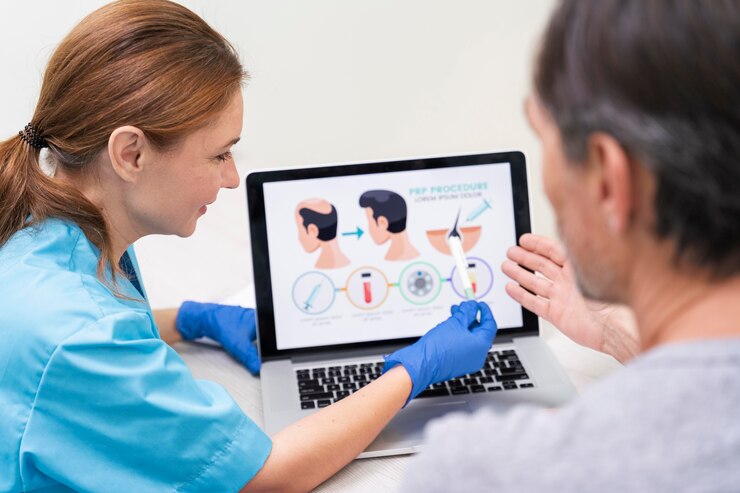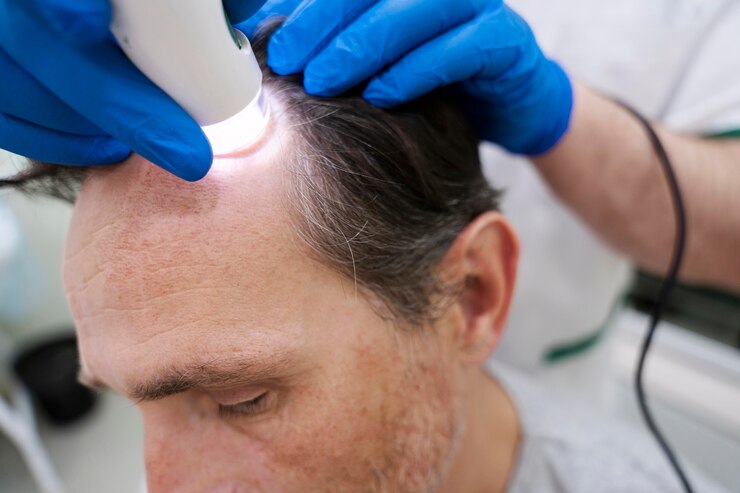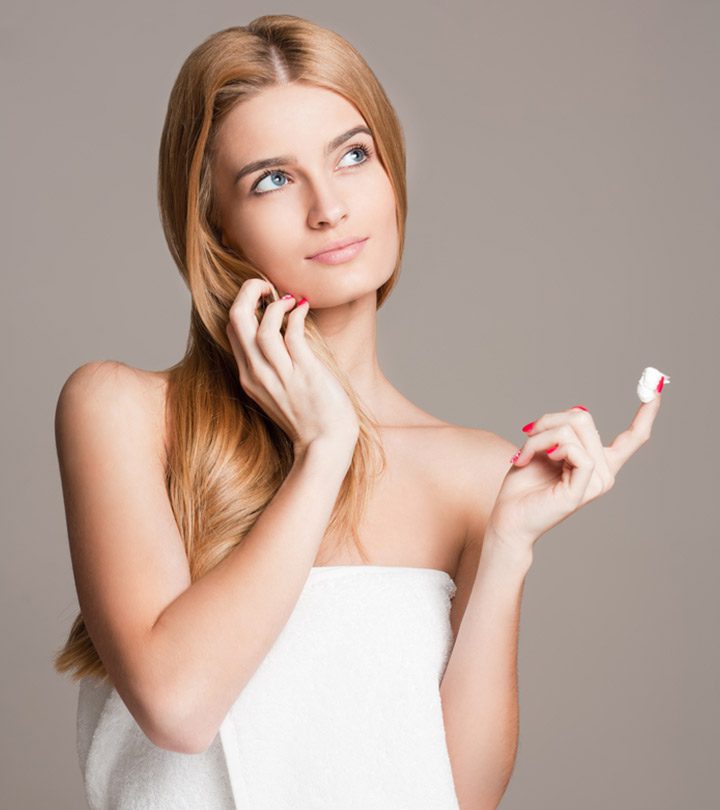
What is The Best Hair Loss Treatment? Unlock Your Hair’s Potential
admin
- 0
- 17
The best hair loss treatment is minoxidil, also known as Rogaine, which can help stimulate hair growth and prevent further hair loss. It is a widely used and clinically proven over-the-counter treatment that is available in both men’s and women’s formulations.
Minoxidil works by increasing blood flow to the scalp and promoting hair follicle activity, leading to thicker, fuller hair over time. Hair loss can be a distressing issue for many individuals, impacting self-esteem and confidence. While there are various treatments and products available, finding the best solution can be overwhelming.
We will explore the most effective hair loss treatment options, including minoxidil, finasteride, hair transplants, and natural remedies. We’ll also discuss the causes of hair loss and provide tips for maintaining healthy hair. If you’re seeking an effective solution for hair loss, this guide will help you make an informed decision about the best treatment for your needs.
Table of Contents
ToggleWhat Causes Hair Loss
Understanding the underlying causes of hair loss is crucial in determining the most effective treatment. Hair loss can be attributed to various factors, including genetics, hormonal imbalances, medical conditions, medications, lifestyle choices, and environmental influences. By delving into the specific causes, it becomes possible to identify the appropriate course of action to address the issue.
Genetics And Hormonal Factors
Genetics plays a significant role in determining one’s susceptibility to hair loss. Heredity is a key factor in male and female pattern baldness, which can be inherited from either parent. Hormonal imbalances, particularly the presence of dihydrotestosterone (DHT), can also contribute to hair loss by shrinking hair follicles and leading to thinner and shorter hair growth cycles.
Medical Conditions And Medications
Several medical conditions can contribute to hair loss, including thyroid disorders, alopecia areata, and scalp infections. Additionally, the use of certain medications such as chemotherapy drugs, blood thinners, and antidepressants may lead to hair thinning or shedding as a side effect.
Lifestyle And Environmental Factors
Stress, poor nutrition, and hair styling practices can impact the health of the hair and contribute to increased shedding or thinning. Environmental factors such as exposure to pollutants, harsh chemicals, and UV radiation can also have a detrimental effect on hair health, leading to increased hair loss.

Topical Treatments
When it comes to managing hair loss, topical treatments are a popular choice for many looking to address this issue. These treatments are applied directly to the scalp and hair, making them convenient and easy to incorporate into a regular grooming routine. Here, we’ll explore two common types of topical treatments: Minoxidil and Natural Oils and Extracts.
Minoxidil
Minoxidil is one of the most widely used topical treatments for hair loss. Available in both over-the-counter and prescription strengths, it is applied directly to the scalp and works by stimulating hair follicles to promote growth. When using Minoxidil, it’s important to apply it consistently and allow time for results to become noticeable. Consistency and patience are key when using Minoxidil as a hair loss treatment.
Natural Oils And Extracts
Natural oils and extracts have gained popularity as a holistic approach to treating hair loss. Many natural oils, such as coconut oil, castor oil, and rosemary oil, are thought to nourish the scalp and promote hair growth. These options are often favored by individuals seeking natural and chemical-free alternatives to traditional treatments. However, it’s essential to be mindful of any potential allergies or sensitivities when using natural oils and extracts on the scalp.
Oral Treatments
When it comes to oral treatments for hair loss, there are a few options that have gained popularity for their effectiveness in combating hair loss. Oral treatments can provide a convenient and targeted approach to addressing hair loss, offering promising results for those struggling with this common issue.
Finasteride
Finasteride, commonly known by its brand name Propecia, is an FDA-approved medication that has been clinically proven to effectively treat male pattern baldness. It works by inhibiting the production of dihydrotestosterone (DHT), the hormone responsible for shrinking hair follicles and leading to hair loss. Finasteride is available in tablet form and should be taken once a day for optimal results.
Biotin Supplements
Biotin, also known as vitamin B7, is a popular supplement that is often recommended for promoting hair growth and overall hair health. Biotin aids in the production of keratin, a key component of hair, and supports the overall health of hair follicles. Available in capsule or tablet form, biotin supplements are an accessible and widely recognized option for improving hair condition and combatting hair loss.
Platelet-rich Plasma (prp) Therapy
Platelet-rich plasma (PRP) therapy is a regenerative treatment that has gained popularity in the field of hair loss restoration. This non-surgical procedure involves using the patient’s own blood to promote hair growth. The process begins with the extraction of a small amount of blood, which is then processed to separate the platelet-rich plasma. The resulting PRP is then injected into the scalp to stimulate hair follicles and encourage natural hair growth.
Process And Benefits
The process of PRP therapy for hair loss typically involves the following steps:
- Extraction of a small amount of blood from the patient
- Centrifugation of the blood to obtain platelet-rich plasma
- Injection of the PRP into areas of the scalp experiencing hair thinning or loss
- Stimulating the growth of new hair follicles
- Improving the thickness and quality of existing hair
- Reducing hair shedding and promoting overall hair health
Suitability And Efficacy
PRP therapy is suitable for individuals experiencing early stages of hair loss or thinning. It may be particularly effective for those with androgenetic alopecia (genetic hair loss) or certain forms of alopecia areata. Moreover, PRP therapy has demonstrated efficacy in promoting hair regrowth and improving hair density in clinical studies.
Low-level Laser Therapy (lllt)
Low-Level Laser Therapy (LLLT) is a non-invasive treatment for hair loss that utilizes low-level lasers or light-emitting diodes to stimulate hair growth. The therapy is also known as photobiomodulation and has gained popularity as a potential solution for individuals seeking hair regrowth without resorting to surgical interventions or medication. LLLT works by stimulating the hair follicles, promoting an increase in their cellular activity and improving blood flow to the scalp.
Mechanism Of Action
LLLT operates on the principle of photobiomodulation. When the low-level lasers or light-emitting diodes are applied to the affected area, they penetrate the scalp and are absorbed by the weak cells. This absorption triggers a physiological response, leading to increased cellular metabolism, improved microcirculation, and the activation of dormant hair follicles. The photons emitted by the lasers stimulate the production of adenosine triphosphate (ATP), the fuel of the hair follicle cells, enhancing their ability to grow hair.
Clinical Evidence And Effectiveness
Numerous clinical studies have explored the effectiveness of LLLT in treating hair loss. Research has indicated that LLLT can lead to an increase in hair density and thickness, as well as a reduction in hair shedding. In a randomized controlled trial, participants who underwent LLLT treatment showed significant improvements in hair counts and hair growth compared to those in the placebo group. Additionally, LLLT has been found to be well-tolerated with minimal side effects, making it a promising option for individuals seeking non-invasive hair loss treatments.
Hair Transplant Surgery
When it comes to combating hair loss, one of the most effective and popular treatments is hair transplant surgery. This procedure involves the transfer of hair follicles from donor areas to the balding or thinning areas, resulting in natural-looking and long-lasting results. Hair transplant surgery offers hope to those struggling with hair loss, providing a viable solution to restore confidence and a full head of hair.
Fue Vs. Fut
There are two primary hair transplant techniques – Follicular Unit Extraction (FUE) and Follicular Unit Transplantation (FUT). Understanding the differences between these methods can help individuals make informed decisions about their treatment options.
In FUE, individual hair follicles are extracted from the donor area using a small, precise punch tool, leaving tiny, circular scars that are virtually undetectable. On the other hand, FUT involves removing a thin strip of scalp from the donor area, which is then dissected into individual follicular units for transplantation.
Both techniques have their own advantages and considerations, so it’s essential to consult with a qualified hair transplant surgeon to determine the most suitable option based on individual needs and expectations.
Recovery And Results
After undergoing a hair transplant surgery, patients can expect a period of recovery and gradual hair growth. It’s important to follow post-operative care instructions provided by the surgeon to ensure optimal healing and successful results.
Typically, within the first few weeks, the transplanted hair will shed, making way for new hair growth. Over the following months, the newly transplanted hair will begin to grow and blend seamlessly with the existing hair, resulting in a natural and thicker appearance.
During the recovery period, it’s crucial to be patient and diligent in caring for the scalp to promote healthy hair growth. Detailed post-operative guidelines and regular follow-up appointments with the surgeon can help monitor progress and address any concerns that may arise.
Ultimately, the results of hair transplant surgery can vary based on individual factors such as hair texture, skin type, and the skill of the surgeon. However, with proper care and adherence to aftercare recommendations, patients can achieve significant and satisfying improvements in hair density and coverage.
Scalp Micropigmentation (smp)
Scalp Micropigmentation (SMP) is a cutting-edge hair loss treatment that has gained popularity in recent years. This innovative procedure involves the use of specialized ink to create the appearance of a fuller head of hair, providing a non-invasive and long-lasting solution for individuals struggling with hair loss.
Procedure Overview
During the SMP procedure, tiny pigment deposits are strategically placed on the scalp to mimic the natural appearance of hair follicles. This technique creates the illusion of a denser hairline and can also be used to camouflage scars or recreate the look of a closely shaved scalp. Unlike traditional hair transplants, SMP does not require surgery and offers immediate, natural-looking results.
Long-term Considerations
One of the key benefits of SMP is its long-term durability. The pigmentation is designed to maintain its color and shape for several years, providing a permanent solution to hair loss. Additionally, SMP requires minimal upkeep, making it a low-maintenance and cost-effective option for individuals seeking long-term hair restoration.
Diet And Nutrition
When it comes to addressing hair loss, the role of diet and nutrition cannot be overstated. A balanced diet rich in essential nutrients can promote hair health and potentially slow down or reduce hair loss. In this section, we will explore the impact of diet and nutrition on hair loss and effective strategies to include in your lifestyle for better hair growth.
Essential Nutrients For Hair Health
Diet plays a critical role in maintaining healthy hair growth. Certain essential nutrients are indispensable for the health and well-being of your hair follicles. Incorporating these nutrients into your diet can contribute to stronger, thicker, and more resilient hair. A deficiency in these nutrients can lead to hair thinning and loss.
- Protein: A fundamental component of hair, ensuring an adequate intake of protein-rich foods such as lean meat, fish, eggs, and legumes is vital for hair health.
- Omega-3 Fatty Acids: Found in fatty fish, flaxseeds, and walnuts, these healthy fats nourish the scalp and hair shaft.
- Vitamins and Minerals: Specifically, biotin, vitamin E, zinc, and iron are crucial for hair growth, and deficiencies can contribute to hair loss. Consuming a variety of fruits, vegetables, and whole grains can help meet these essential nutrient needs.
Impact Of Hydration And Relaxation
In addition to diet, hydration and stress management are also vital components of maintaining healthy hair growth. Proper hydration supports overall bodily functions, including hair health. Meanwhile, stress and tension can contribute to hair loss. Engaging in relaxation techniques such as yoga, meditation, or simply finding time for activities you enjoy can help reduce stress levels and promote hair growth.
Hair Care Practices
When it comes to managing hair loss, adopting the right hair care practices is crucial. By implementing healthy habits and prioritizing the well-being of your hair, you can support its growth and minimize the risk of excessive shedding. In this section, we’ll explore the impact of hair styling practices and stress management on hair loss, equipping you with valuable insights to maintain a healthy mane.
Hair Styling Practices
Our styling choices play a significant role in the overall health of our hair. While a sleek ponytail or a tight bun may complement your look, such hairstyles can exert pressure on the hair follicles, leading to traction alopecia. Opt for looser hairstyles and refrain from using elastic bands that pull on the strands. Using heat styling tools excessively can also damage the hair shaft, causing breakage and thinning. Implementing heat protectant sprays and limiting the use of hot tools can safeguard your hair’s integrity and promote strength.
Stress Management And Its Influence On Hair Loss
The correlation between stress and hair loss is well-documented, with studies highlighting the impact of chronic stress on the hair growth cycle. When the body is under prolonged stress, it can lead to an imbalance in hormones, prompting hair shedding and reduced follicle productivity. Incorporating stress-relief techniques such as meditation, yoga, or engaging in hobbies can mitigate these effects, promoting a healthier environment for hair growth.
Frequently Asked Questions On What Is The Best Hair Loss Treatment?
What Causes Hair Loss In Men And Women?
Hair loss can be caused by genetics, hormonal changes, medical conditions, and stress. In men, it is commonly linked to male pattern baldness, while in women, it can be due to hormonal imbalances, pregnancy, or certain medications.
What Are The Most Effective Hair Loss Treatments?
Effective hair loss treatments include minoxidil, finasteride, and hair transplant surgery. These treatments work to either stimulate hair growth or prevent further hair loss. Consulting with a healthcare professional can help determine the best treatment option for individual needs.
Are Natural Remedies Effective In Treating Hair Loss?
Natural remedies such as scalp massage, essential oils, and dietary changes can help improve hair health, but their effectiveness in treating hair loss varies. While some people may benefit from these methods, it’s important to consult with a healthcare professional for personalized advice.
Conclusion
In a world filled with hair loss treatments, finding the best one can be overwhelming. Whether you opt for natural remedies or medical interventions, the key is to find a solution that works for you. Understanding the underlying causes and being proactive in seeking treatment is essential in addressing hair loss.
Remember, finding the best hair loss treatment is a personal journey that requires careful consideration and expert guidance.



